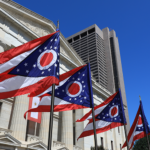City and county government officials faced off against labor leaders on Tuesday in a debate over a bill that would allow local jurisdictions to opt out of prevailing wage requirements for projects worth less than $5 million.
“This is a bill about local control,” Rep. Liz Pike (R-Camas) told members of the House Labor and Workforce Development Committee. “Ideally, the representatives closest to the people should be the ones making decisions about how taxpayer money is spent. And anything we can do to save taxpayers a few dollars in the current economy is a good thing.”
Prevailing wage rates are defined as the hourly wage, usual benefits and overtime paid to the majority of workers, laborers and mechanics within a particular area. Prevailing wages are established by regulatory agencies for each trade and occupation employed in the performance of public work, as well as by the state Department of Labor and Industry.
Prevailing wage laws were created in the 1930s to prevent out-of-state workers from under-bidding local contractors on public construction projects and destabilizing a local construction industry. But opponents also believe prevailing wage inhibits competition and artificially inflates the cost of public projects.
Pike’s bill, HB 2299, would not require local governments to ignore prevailing wage requirements, but it would allow them to opt out on projects valued at less than $5 million.
“Local governments have limited resources,” said Camas City Administrator Peter Cappell, “and this allows us to stretch those resources a little farther. It means more jobs and more public works projects.”
“Funding is becoming increasingly challenged,” agreed David Scott, city administrator from neighboring Washougal. “We need to be efficient in how we use our resources, and prevailing wages are central to that effort. Moving in the direction of some relief would result in more projects being built.”
Not surprisingly, labor leaders saw the matter differently.
“Public dollar investments should equate to local investments,” said David Meyers, executive secretary of the Washington Building and Construction Trades Council. “Cities and counties should not be given the option of selling Washington workers short.”
“Allowing jurisdictions to opt out of the prevailing wage would actually cost taxpayers more,” reasoned Chris McClain, representing Ironworkers Local 86. “When workers aren’t earning a living wage, it puts more of a strain on social services. The taxpayers wind up subsidizing contractors who aren’t paying their fair share.”
“I don’t see why the standard should be different for federal and state projects than it is for cities and counties,” added Josh Swanson of Operating Engineers Local 302. “This is public money, and should be treated the same as you’d treat any public money.”
However, for Rep. Cary Candotta (R-East Wenatchee), it isn’t simply a question of cutting corners.
“This isn’t just about saving a few bucks here and there,” he said. “In my district, I can tell you the difference between paying prevailing wage and not paying it can mean doing a project or not doing it. Whatever benefits there may be to paying prevailing wage, it seems like nobody benefits if a project doesn’t get built at all.”











